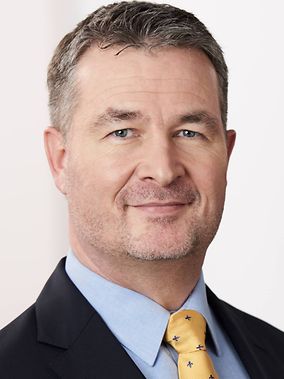Merkel in the South Caucasus: A Thorny Diplomatic Agenda
Aug/23/2018 Archived in:International | Armenia
By Muriel Mirak-Weissbach – Special to the Mirror-Spectator
BERLIN — German Chancellor Angela Merkel will visit Armenia at the end of August as part of a regional tour that will include Georgia and Azerbaijan. She is expected to arrive in Yerevan on August 24 (after press time) for a two-day working visit, during which she will meet with both Prime Minister Nikol Pashinyan and President Armen Sarkissian. Following her talks with the former, which should deal with bilateral relations, economic issues and the European Union, the two are scheduled to hold a joint press conference.

Albert Weiler, a member of the German Bundestag (Parliament) barred from entering Azerbaijan
Foreign policy themes are also on the agenda, and high among them will certainly be the tensions with Azerbaijan around Nagorno Karabakh (Artsakh). Germany is a permanent member of the Minsk Group within the Organization for Security and Cooperation in Europe (OSCE), which has been tasked with finding a negotiated solution to the conflict. German President Frank-Walter Steinmeier made his fourth visit to Yerevan in 2016, at the time in his capacity as foreign minister. In talks with then-Foreign Minister Edward Nalbandian, he spoke of the need to melt “frozen conflicts,” like the one between Azerbaijan and Armenia, and called for direct negotiations between the two sides. Recently, in early July, the co-chairs of the Minsk Group, from the Russian Federation, France and the United States, met in Brussels with the two foreign ministers, Zohrab Mnatsakanyan and Elmar Mammadyarov, in pursuit of confidence building measures.
Mediation Undesired
Merkel’s diplomatic tour was supposed to bring new momentum into the process. But an extraordinary move by the Azerbaijan government just days prior to her departure has raised concerns that Berlin’s peace-seeking mission is not welcome in Baku. On August 20, Albert Weiler, a CDU Bundestag member from Thuringia who is scheduled to accompany Merkel on the trip, announced that the authorities were not allowing him to enter the country. As first reported by the online edition of the mass daily tabloid BILD and covered by other major press, Weiler was informed that he was considered an “undesirable person” and mediation attempts undertaken by the German Foreign Ministry with the Azerbaijan embassy led nowhere. The embassy, citing decisions taken at the highest government level, made clear to the parliamentarian that he would be arrested at the airport. (The similarities to practices one usually associates with Turkey and President Erdogan are striking.) Weiler decided to go ahead with the travel, but to return to Berlin after visiting Georgia and Armenia.
Why the fuss? Weiler is deputy chairman of the German-South Caucasus Group in the parliament and has been active in seeking a solution to the Nagorno Karabakh conflict. He visited the region in 2014 and 2016. As he commented following the ban on his visit, “I am greatly concerned about peace in the region and would have been glad to mediate.” What is not mentioned in the press coverage of the outrageous diplomatic affront is that Weiler has become prominent in promoting relations with Armenia. In May 2015, he founded the German-Armenian Forum, dedicated to helping Armenians and Germans learn more about each other, by facilitating contact and exchanges at all levels – from the politicians to the students and civil society. (See “German-Armenian Forum Launched in Berlin,” Armenian Mirror-Spectator, May 29, 2015.)
While in Yerevan, Merkel plans to visit the Genocide monument and museum at Tsitsernakerbad, as Steinmeier did before her. In July 2016, the German Bundestag (Parliament) passed a resolution recognizing the Armenian genocide of 1915.
In talks with government officials on her first day in the region, August 23 in Georgia, it is expected that relations with NATO and the European Union will be discussed. On the last day of her tour, August 25, she will be in Baku, where gas deliveries to Germany and the EU will be on the agenda.
The Role of Putin
It is important to note that on Saturday, August 18, just a day after her Caucasus trip was officially announced, Merkel held substantial talks with Russian President Vladimir Putin at the government guest house at Schloss Meseberg in Brandenburg. It was their second meeting in three months. What became public from their three-hour session was that their talks included the situation in Syria, Ukraine, Iran and the North Stream 2 gas pipeline from Russia to Germany. Merkel faced considerable criticism for meeting Putin, but responded by stressing the need for cooperation between Germany and Russia to find solutions to pressing international crises. These certainly include the South Caucasus; not only Georgia’s delicate position but also the Nagorno Karabakh conflict.

